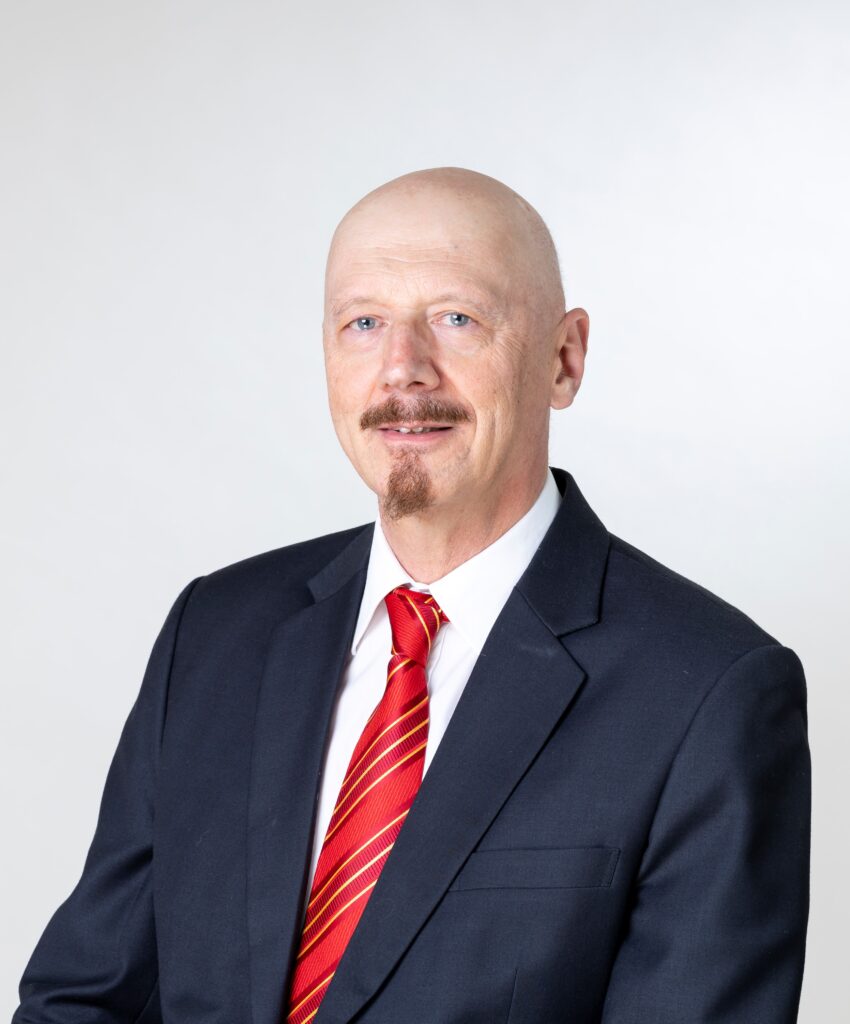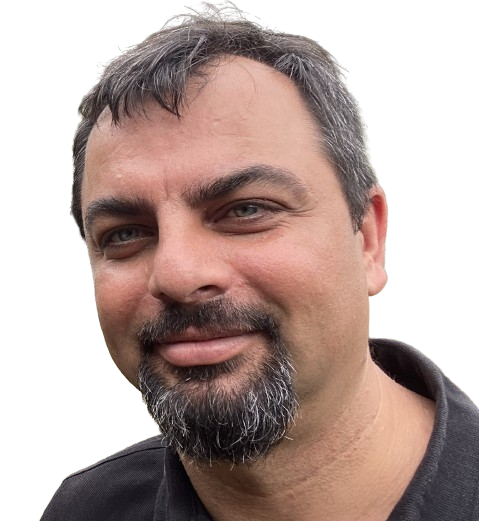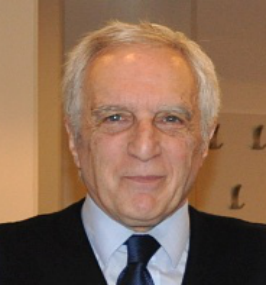Plenary Speaker I
Prof. Richard F. Hartl
University of Vienna, Austria
Title:
Collaborative Logistics
Abstract: Collaborative logistics is part of the sharing economy concept. In order to make more efficient use of resources, there are several options. Either persons or firms do not “own” some equipment (e.g., cars or trucks) but share them. The other option is that equipment is still owned by some persons or firms but there is some exchange of workload (transportation requests, storage space, or production capacity). The talk will focus on the latter, with an emphasis on collaborative vehicle routing, where carriers run their own vehicles but can exchange transportation requests in the sense of horizontal collaboration. Both centralized and decentralized approaches will be considered. In the latter case, combinatorial auctions will be used.
Biodata: Richard Hartl was born in Vienna, Austria, in 1956, and studied Business Mathematics (Master and PhD) at the Vienna University of Technology. Afterwards he was Post-Doc at the University of Toronto and after his return to Vienna he was Assistant and Associate Professor at the TU Wien, where he obtained his “Habilitation” in 1987. From 1993 to 1995 he was Full Professor and Vice Dean at the Faculty of Economics and Management, Otto-von-Guericke University of Magdeburg, Germany. From 1995 to 2025 he was Full Professor and Chair of Production and Operations Management at the University of Vienna, where he also served as Head of Department and Dean of Studies. Currently he is professor emeritus there. Since 2007 he has also been Senior Extramural Fellow of the Center for Economic Research (CentER), University of Tilburg, The Netherlands.
Prof. Hartl has covered a wide are of subjects in research and teaching, and has received several teaching awards, such as the main teaching award of the University of Vienna in 2014. He has also been active in various consulting projects with the industry.
He served in various functions for scientific organizations, e.g. treasurer, and president of the Austrian Society for Operations Research (ÖGOR), member of the advisory board of the German Society for Operations Research (GOR), member of the executive board of the German Academic Association for Business Research (VHB), and board member and treasurer of the International Federation of Operational Research Societies (IFORS).
Prof. Hartl has been associate editor editor of several leading OR journals, e.g. Transportation Science. He has written more than 200 papers in leading international journals with more than 21,000 citations in total (h-index 70). His main research areas are quantitative methods in production, operations management, and transportation, as well as metaheuristic and hybrid optimization methods. https://scholar.google.com/citations?user=IxDNI1AAAAAJ
In 2021, he received the science award for outstanding achievements in the development of Operations Research by the German Society for Operations Research (GOR). In 2024 he was named honorary member of the Austrian Society for Operations Research (ÖGOR) In 2024, he was honored by INFORMS with the title of Senior Member (member of the inaugural group of senior members.
Plenary Speaker II
Prof. Cristian Mahulea
University of Zaragoza, Spain
Title:
From Logic to Motion: Real-Time Guarantees for Multi-Robot Systems
Abstract: Real-time requirements are increasingly central to
autonomous robotic systems operating in safety-critical and collaborative
environments. Beyond computing collision-free trajectories, modern path-planning
frameworks must ensure that complex temporal, spatial, and synchronization
constraints are satisfied by design. In this plenary talk, I will present a
correctness-by-construction approach to multi-robot path planning under
real-time specifications, grounded in formal methods and discrete-event
modeling.
The talk introduces a framework based on Time Petri Nets (TPNs) that integrates robot motion models with Metric Interval Temporal Logic (MITL) specifications. Robot behaviors, possibly heterogeneous in capabilities and roles, are abstracted through quotient TPN models of the environment, while global real-time missions expressed in MITL are translated into an equivalent TPN representation. A small set of synchronization mechanisms couples both models, ensuring that mission progress is triggered exclusively by valid robot actions. As a result, any feasible execution is obtained as a reachability path in the composed TPN, guaranteeing satisfaction of timing and ordering constraints without relying on ad-hoc controllers or post-hoc verification.
Unlike optimization-based or hierarchical planning approaches, the proposed method avoids a separate synthesis or scheduling layer: planning reduces to a formal reachability problem that can be solved using existing model-checking tools. Through illustrative multi-robot case studies, the talkwill highlight how real-time constraints, collaborative actions, and heterogeneous capabilities are jointly enforced, and will discuss scalability, interpretability, and the trade-offs between optimality and formal guarantees.
The presentation concludes by outlining future research directions, including extensions toward signal temporal logic, continuous-domain behaviors, and robust or stochastic timing models, positioning Time Petri Nets as a powerful bridge between real-time specifications and executable robotic plans.
Biodata: Cristian Mahulea received his B.S. and M.Sc. degrees in control engineering from the Technical University of Iasi, Romania, in 2001 and 2002, respectively, and his Ph.D. in systems engineering from the University of Zaragoza, Spain, in 2007. Currently, he is a Full Professor at the University of Zaragoza, where he chaired the Department of Computer Science and Systems Engineering from 2020 to 2024. He has also served as a visiting professor at the University of Cagliari, Italy. His research interests include discrete event systems, hybrid systems, mobile robotics, and healthcare systems. He has been a Visiting Researcher at the University of Sheffield (UK), Boston University (USA), University of Cagliari (Italy), and ENS Paris-Saclay (France). Cristian has served as an Associate Editor for IEEE Transactions on Automation Science and Engineering (TASE) and IEEE Control Systems Letters (L-CSS). He is currently an Associate Editor for IEEE Transactions on Automatic Control (TAC), the International Journal of Robotics Research (IJRR), Discrete Event Dynamic Systems: Theory and Applications (JDES), and IEEE Robotics and Automation Letters (RA-L). Additionally, he was the General Chair of ETFA 2019.
Plenary Speaker III
Prof. Maurizio Faccio
University of Padua, Italy
Title: Flexible and scalable warehousing through mobile robots technology
Abstract: Scalability, the ability to increase system
capacity (in terms of the number of totes handled per unit of time and the
total number of totes stored), and flexibility, the ability to perform
simple, cost-effective, and rapid layout modifications, such as changing the
number and position of picking bays or rack configurations are key drivers
for the logistics of the future. For these reasons mobile robots are
becomming a useful technology to integrate into storage system, contibuting
for a rapid evolution of intralogistics where transport, retrieval, and
picking tasks are increasingly interconnected. This study analyzes the
operational performance of innovative mobile robots systems applied to
warehousing. Multi-Tote Storage and Retrieval (MTSR) systems and AMRSs are
the main mobile robots technologies investigated under different
configurations. Pure MTSR systems, hybrid MTSR–AMR configurations, and
hybrid AS/RS–AMR systems are considered in the study. The objective is to
identify, for each configuration, the key parameters, performance
indicators, and the conditions under which each approach achieves maximum
efficiency. Mathematical frameworks are developed by combining analytical
modeling with simulation techniques. The MTSR model integrates horizontal
and vertical movements within a single robotic unit, whereas the hybrid
MTSR–AMR configuration allocates these tasks to specialized MTSR and AMR
subsystems. Similarly, in hybrid AS/RS–AMR systems, tasks are distributed
between AS/RS units and AMRs. All models consider physical travel times,
handling operations, and queueing effects to represent aisle and front-aisle
access delays. A comprehensive experimental analysis investigates the impact
of layout geometry, rack depth, fleet size, order size, routing strategy,
and tote location policy on overall system performance. Preliminary results
are presented, together with a case study illustrating the practical
implications of the research.
Biodata:
Maurizio Faccio is currently Full Professor of Industrial Systems and Logistics
at the School of Engineering of the University of Padua (Italy). After
graduating in Engineering Management with a score of 110/110 cum laude at the
University of Padua, he got his Ph.D. in Industrial Systems from this
university, discussing a thesis titled 'Assembly in the Modern Industrial
Production'. He teaches and carries out research in industrial plant design and
management, development of advanced manufacturing technologies, design of the
assembly system, plant logistics, industrial logistics, warehouse design and
management, and operations management. He has published around 180 research
papers, over 150 indexed in Scopus, in international journals and conference
proceedings, with a Hirsch index = 35
(https://scholar.google.it/citations?user=zCoo_HAAAAAJ&hl=it).
He is part of the World's 2% Top Scientists by Stanford University 2024
https://elsevier.digitalcommonsdata.com/datasets/btchxktzyw/7
Moreover, he serves at present as an Associate Editor in the Journal of
Intelligent Manufacturing, Springer, Impact Factor 8.33, ranked 15th in
SJR-Industrial and Manufacturing Engineering in 2022. He has further
participated as a member of different International Journal Editorial Boards,
including but not limited to the following: Assembly Automation, Emerald;
Applied Science, MDPI; Universal Journal of Mechanical Engineering, Horizon
Research Publishing. He was awarded the Highly Commended Paper Award in 2013 by
the international journal 'Assembly Automation for the paper 'Fully Flexible
Assembly System (F-FAS): a New Concept in Flexible Automation.' Besides this, he
also got the Best Commended Paper Award at the international conference IFAC
MIMS 2022 Conference on the paper entitled, 'Influence of Task Time Variations
in Adopting Walking Worker Assembly Systems: a design approach.' Top cited 2023
paper, Journal of Intelligent Manufacturing, with the paper, Human factors in
cobot era: a review of modern production systems features. He was also awarded,
in 2019, the Best Financed Research Project award by the Veneto Region for the
project 'COLOG' - 'Methods and Tools for the Integration of Human Resources and
Collaborative Robotic Systems in Manufacturing Production Management'. In 2020
he developed several parts of the project AD-HOC - Augmentation and Development
of Human Operations by Cobots for improving manual work in the manufacturing
companies. Member of the International Technical Committee TC 5.1. Manufacturing
Plant Control (IFAC) and Scientific Vice-chair "Plant Operations Management"
thematic chair. He carried out research activity in national and international
research programs and participated in the European Project MAIA, under the call:
H2020-MSCA-RISE, Models and Methods for an Active Ageing Workforce: an
International Academy (https://maiaproject.eu/).
He leads or is part of numerous research collaborations in the research area of
Industrial Systems and Logistics, with Italian and European companies. In
particular, he coordinated approximately 60 research projects on innovation and
technological transfer in the Industrial Systems and Logistics sector. These
projects involved institutions with high economic impact - business volume - and
social impact - job positions. The added value for the beneficiaries has often
been high, with technology transfer and innovations affecting production,
logistics, and organizational processes. This has partly enabled the development
of prototypes and, on the other hand, the production of various scientific
publications in international journals and conferences. For Didactics Activities
look at
https://en.didattica.unipd.it/off/docente/04D34D85516C525419BAF82BD42ECA90
For Scientific Publication look at
https://scholar.google.it/citations?user=zCoo_HAAAAAJ&hl=it
Plenary Speaker IV
Prof. Luiz Moutinho
University of Suffolk, UK
Title: Abstract FUTURMOTION in IND ENG
Abstract: The presentation starts by discussing Industry 5.0 and Smart Manufacturing, followed by sensor manufacturing and sensor fusion. The keynote will then proceed to cover issues like Digital Twins, DTaaS, Virtual Production and Multi-Robot Systems. The discussion will then move on by tackling topics like, Circular Manufacturing, 4D to 8D Printing, Smart Materials and Green Manufacturing. The presentation will then continue by analysing the concepts of Edge Analytics, IIoT, Smart Assets and Self-Optimising Smart Factories. Finally, the presentation ends by covering the issues of Cloud-Native and Hybrid Analytics, Human-Centric Analytics and Augmented Intelligence.
Biodata: Professor Luiz Moutinho (BA, MA, PhD, MAE, FCIM) is the Visiting Professor of Marketing at Faculty of Arts, Business and Applied Social Science, University of Suffolk, School of Technology, Business and Arts, Ipswich, England, UK, and IPAM, Marketing Business School.
In 2020 he was elected as the member of The Academia Europaea. In 2017 he received a degree of Prof. Honoris Causa from the Univ. of Tourism and Management Skopje, North Macedonia. In 2025 was rated among the top 85 in 100 best scientists in the United Kingdom by Business and Management by Research.com and a Top 5% Professor in the areas of Marketing by ScholarGPS.
During 2015 - 2017 he was a professor of BioMarketing and Futures Research at the DCU Business School, Dublin City University, Ireland. This was the first Chair in the world on both domains - BioMarketing and Futures Research. Previously, and for 20 years, he had been appointed as the Foundation Chair of Marketing at the Adam Smith Business School, University of Glasgow, Scotland.
He completed his PhD at the University of Sheffield in 1982. He has been a Full Professor for 36 years and held posts at Cardiff Business School, University of Wales College of Cardiff, Cleveland State University, Ohio, USA, Northern Arizona University, USA and California State University, USA. He has held Visiting Professorship positions at numerous universities in China, Lithuania, Austria, New Zealand, Denmark, Slovenia, Portugal, Hungary, Taiwan, Brazil, Colombia, Fiji and Cyprus.
Between 1987 and 1989 he was the director of the Doctoral Programmes at the Confederation of Scottish Business Schools and at the Cardiff Business School between 1993 and 1996. He was director of the Doctoral Programme in Management at the University of Glasgow between 1996 and 2004.
Professor Moutinho is the Founding Editor-in-Chief of the Journal of Modelling in Management (JM2) and Co-editor-in-Chief of the Innovative Marketing Journal. He has another 4 associate editorships as well as being in the editorial boards of another 46 international academic journals.
His areas of research interest encompass marketing and management futurecast, artificial intelligence, biometrics and neuroscience in marketing, futures research algorithmic self, EmoWear - a wearable tech device that detects human emotions, evolutionary algorithms, human-computer interaction, the use of artificial neural networks in marketing, modelling processes of consumer behaviour and tourism futurecast.
He has developed a number of conceptual models over the years in areas such as tourism destination decision processes, automated banking, supermarket patronage, among other areas. The testing of these research models has been based on the application of many different statistical, computer and mathematical modelling techniques ranging from multidimensional scaling, multinomial logit generalised linear models (GLMs) and linear structural relations to neural networks, ordered probit, simulated annealing, tabu search, genetic algorithms, memetic algorithms and fuzzy logic.
Prof. Moutinho has given keynote speeches, lectures, seminars, talks, etc. in 63 countries worldwide.
Prof. Moutinho has 41 books published, over 162 articles published in refereed academic journals.



